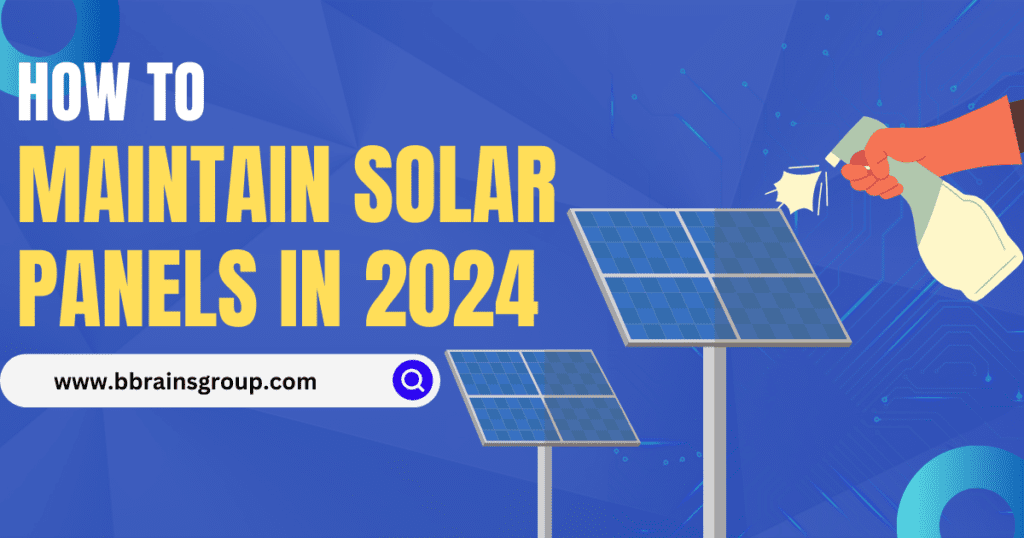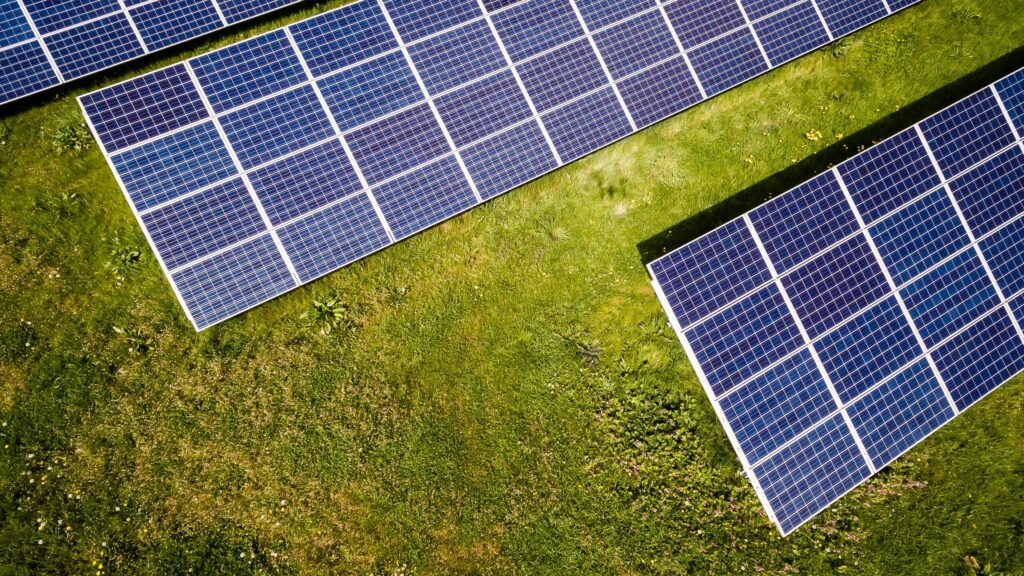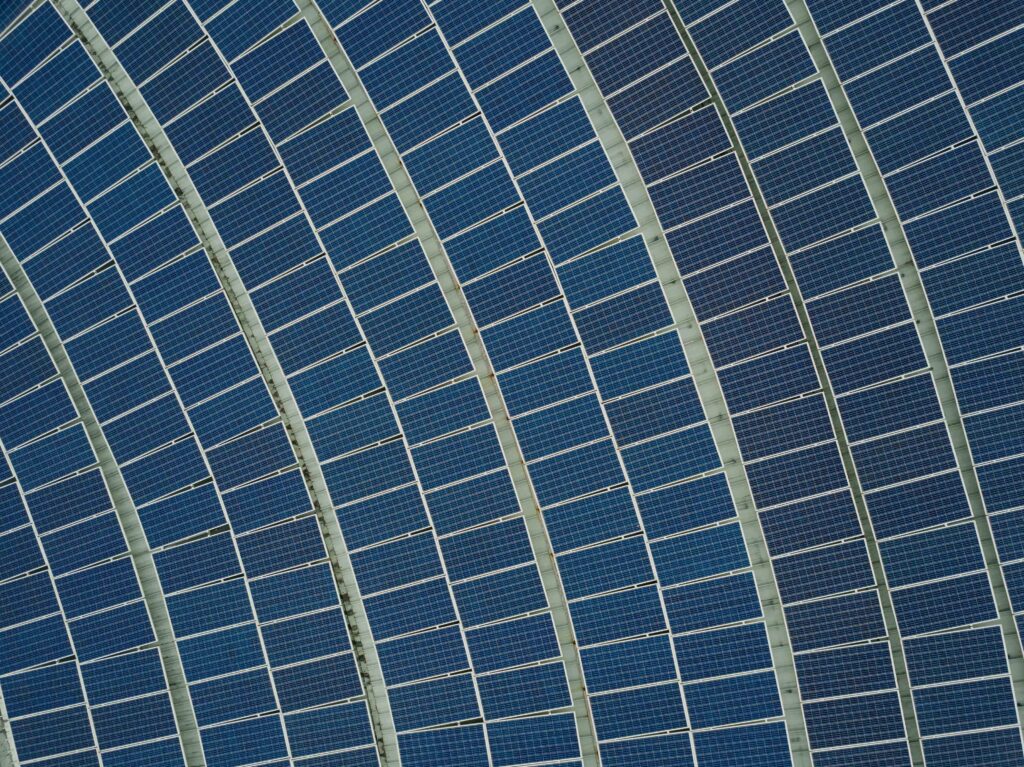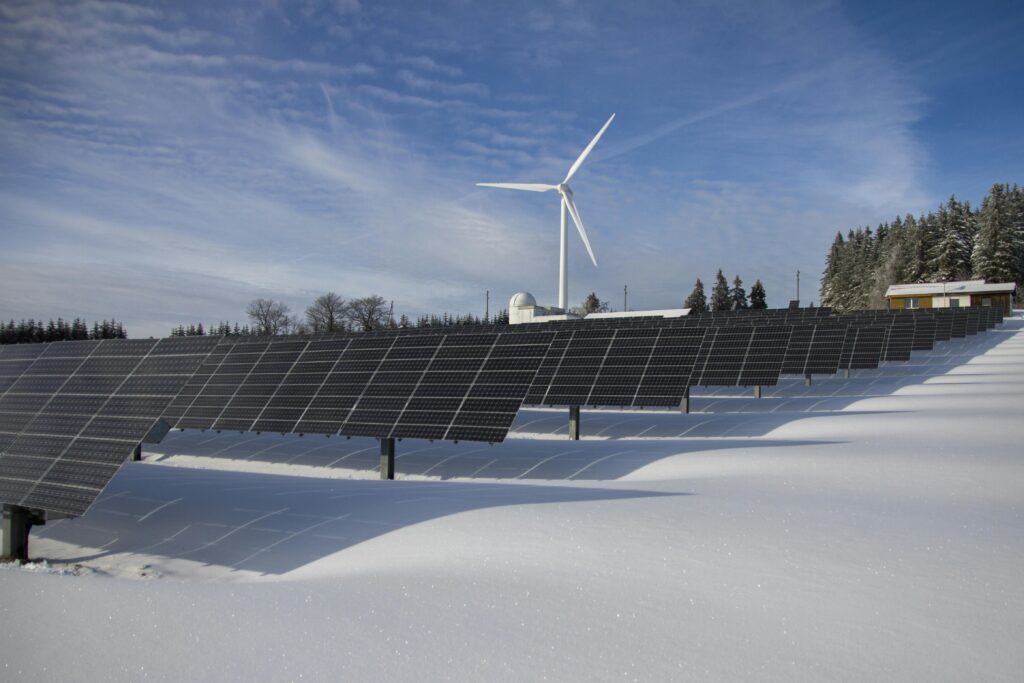The Process to Maintain solar panels is essential to ensure they continue producing clean energy efficiently for many years. Solar panels are designed to be durable and require minimal maintenance, but regular care can optimize their performance and longevity. Proper maintenance not only helps in maximizing energy production but also prevents potential issues that could affect their efficiency over time.

Regular inspections and simple cleaning routines can go a long way in keeping your solar panels in top shape. By understanding the basics of solar panel maintenance, you can ensure they operate effectively and contribute to your energy savings consistently.
Regular Cleaning
Importance of Regular Cleaning:
Regular cleaning of your solar panels is crucial to maintain their efficiency and ensure they generate maximum electricity.
Cleaning Method:
Use a gentle soap solution and a soft cloth or sponge to remove dust, pollen, leaves, and bird droppings without damaging the surface.
Frequency:
Clean your panels every few months, depending on local weather conditions and environmental factors, to maximize energy production and savings.
Inspecting for Damage
Regularly inspecting your solar panels for any signs of damage is important to catch potential issues early and prevent further problems. Here’s how you can effectively inspect your solar panels:
Visual Inspection:
Look for cracks, chips, or scratches on the surface of the panels. These can affect their performance and efficiency.
Check Mounting and Frames:
Ensure that the panels are securely mounted and that the frames are intact. Loose or damaged mounts can lead to instability and reduced efficiency.
Inspect Seals and Connections:
Examine seals around the panels and connections to ensure they are intact and not corroded. Faulty seals can lead to water damage or electrical issues.
Regular inspections help maintain solar panels and it’s structural integrity and ensure they continue to operate efficiently for years to come.
Checking Panel Efficiency
Ensuring that your solar panels are operating at their maximum efficiency is crucial for optimizing energy production. Here are key aspects to consider when checking panel efficiency:

Monitoring Output:
Regularly monitor the energy output of your solar system to ensure it aligns with expected performance levels.
Comparing Performance:
Compare current energy production with historical data or manufacturer specifications to detect any significant drops in efficiency.
Inspecting for Shading:
Check for any new sources of shading, such as growing trees or nearby structures, that could reduce sunlight exposure to the panels.
By regularly checking panel efficiency, you can identify and address any issues promptly, ensuring your solar system continues to generate maximum energy savings.
Monitoring Energy Production
Monitoring the energy production of your solar panels helps you track performance and identify any potential issues. Here’s how you can effectively monitor energy production:
Use Monitoring Tools:
Utilize monitoring systems or apps provided by your solar panel installer to track daily, weekly, and monthly energy production.
Compare Expected vs. Actual Output:
Compare the expected energy output (based on sunlight hours and panel specifications) with the actual output to ensure consistency.
Identify Trends:
Look for trends in energy production over time. Sudden drops or fluctuations may indicate issues with the panels or system.

Regular monitoring allows you to proactively manage your solar system’s performance, ensuring optimal efficiency and maximizing your energy savings.
Inspecting Wiring and Connections
Regularly inspecting the wiring and connections of your solar panels is essential to ensure safety and optimal performance. Here’s what you should do:
Visual Inspection:
Check for any signs of wear, corrosion, or loose connections in the wiring leading from the panels to the inverter and electrical system.
Testing Connections:
Test the connections for tightness and integrity to prevent electrical issues and ensure efficient energy transfer.
Consulting a Professional:
If you notice any damage or are unsure about the condition of the wiring, it’s advisable to contact a qualified electrician or solar technician for inspection and repairs.
By maintaining the integrity of the wiring and connections, you can enhance the safety and efficiency of your solar panel system for years to come.
Dealing with Snow and Debris
Managing snow and debris on your solar panels is crucial to maintaining their efficiency, especially during winter or in areas with heavy rainfall. Here’s how you can effectively handle snow and debris:
Removing Snow:
Use a soft brush or snow rake specifically designed for solar panels to gently remove snow without scratching the surface. Clearing snow promptly helps panels resume normal operation and maximize sunlight absorption.

Cleaning Debris:
Regularly remove leaves, dust, and other debris from the panels using a soft cloth or sponge with water and mild soap. Avoid abrasive materials that could damage the panel’s surface.
Safety Considerations:
When clearing snow or debris, prioritize safety by using proper equipment and techniques to prevent damage to the panels or injury.
By promptly removing snow and debris, you can ensure your solar panels continue to operate efficiently and generate maximum electricity throughout the year.
Professional Inspections
Having your solar panels professionally inspected at regular intervals is important to ensure they are in optimal condition and operating efficiently. Here’s why professional inspections are valuable:
Expert Assessment:
Qualified solar technicians can conduct thorough inspections to identify potential issues that may not be apparent during routine checks.
Maintenance Recommendations:
Professionals can provide recommendations for maintenance and repairs to enhance the performance and longevity of your solar panel system.
Safety Assurance:
Professional inspections ensure that your solar panels meet safety standards and operate without risk of electrical or structural issues.
Schedule professional inspections annually or as recommended by your solar panel installer to maintain the reliability and efficiency of your solar energy system.
Understanding Warranty and Support
Understanding the warranty and support options for your solar panels is crucial for ensuring long-term reliability and protection. Here’s what you should know:
Review Warranty Coverage:
Familiarize yourself with the details of your solar panel manufacturer’s warranty, including coverage for defects, performance guarantees, and duration.
Maintenance Requirements:
Check if there are specific maintenance requirements outlined in the warranty terms to ensure compliance and coverage validity.
Support Services:
Explore available support services such as technical assistance, repair services, and customer support provided by the manufacturer or installer.
Understanding your warranty and support options helps you address potential issues effectively and ensure that your investment in solar energy continues to deliver reliable performance over its lifetime.
Environmental Factors to Consider
Environmental factors can impact the performance and maintenance needs of your solar panels. Here are key factors to keep in mind:
Climate:
Consider how climate conditions such as heat, humidity, or extreme cold can affect the efficiency and longevity of your panels.
Pollution and Dust:
Areas with high pollution levels or dust accumulation may require more frequent cleaning to maintain optimal performance.
Natural Hazards:
Assess potential risks from natural hazards like storms, hail, or wildfires, and take preventive measures to protect your panels.
Understanding and mitigating these environmental factors can help you optimize the performance and durability of your solar panel system over time.
Common Issues and Troubleshooting
Being aware of common issues with solar panels and how to troubleshoot them can help you address problems promptly. Here are some common issues and troubleshooting tips:
Loss of Efficiency:
If you notice a drop in energy production, check for shading, dirt buildup, or potential issues with the wiring or connections.
Inverter Problems:
Inverters can sometimes malfunction, leading to issues with energy conversion. Monitor the inverter’s status lights and consult the manufacturer’s manual for troubleshooting steps.
Weather Damage:
After severe weather events such as storms or hail, inspect the panels for physical damage and assess any necessary repairs.
Monitoring Alerts:
Pay attention to alerts or notifications from your monitoring system that indicate abnormalities in energy production or system performance.
Being proactive in identifying and addressing these issues can help maintain the efficiency and reliability of your solar panel system over time.
Conclusion
Maintaining your solar panels ensures they keep producing clean energy efficiently for your home or business. By regularly cleaning them, inspecting for damage, and monitoring their energy output, you can extend their lifespan and maximize their performance.
Understanding the warranty and support available for your panels also helps you address any issues effectively. Remember to prioritize safety when handling maintenance tasks and stay aware of environmental factors that may affect your panels. With these practices, your investment in solar energy will continue to benefit you with sustainable and reliable power for years to come.
Note:
If you have any doubts or queries, Contact Us On Our LinkedIn page!
One Response